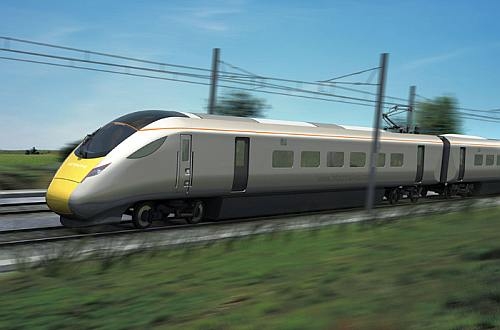The contract to finance, supply, and maintain the extra trains takes the total value of the Intercity Express Programme (IEP) to £5.8bn.
The 225km/h 25kV ac electric trains, designated class 801, will be introduced on services from London to Leeds, Newcastle, and Edinburgh in 2019, replacing the fleet of class 91 locomotives and Mk4 coaches built in the late 1980s.
Under the 27.5-year fixed-price train provision agreement between DfT and Agility, Hitachi will maintain the fleet for 27.5 years. The trains will be serviced at a new depot at Doncaster, and existing maintenance facilities will also be upgraded to accommodate the new fleet.
Last July the DfT reached financial close with Agility on a contract for an initial tranche of 596 vehicles. This comprises 21 nine-car electric trains and 36 five-car bi-mode trains for the Great Western franchise (369 vehicles), while the second phase includes 12 five-car electric trains, 10 five-car bi-mode trains, and 13 nine-car bi-mode trains for the East Coast franchise (227 vehicles). The Great Western trains will enter service in 2017, while the initial batch for East Coast will be introduced from 2018, replacing the fleet of diesel HSTs.
DfT says the nine-car trains will have 131 more seats than the East Coast HSTs with "no compromise on legroom."
The first four trains for Great Western, all bi-mode five-car sets, will be assembled at Hitachi's Kasado plant in Japan before final assembly moves to a new purpose-built facility at Newton Aycliffe in northeast England, which will employ 730 people. Hitachi recently signed a deal for the construction of the plant, which is due to start full production in 2016. The site will initially assemble up to 20 vehicles per month for the first contract, although it will have capacity to produce up to 36 vehicles per month.

